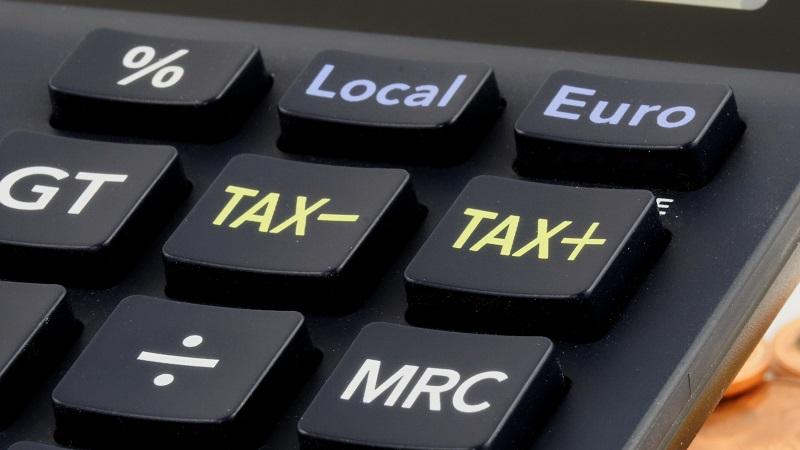The Administrative Burdens Advisory Board, which aims to represent the views and interests of businesses, claims that its concerns have been largely heeded – but stresses that further engagement is crucial
HM Revenue and Customs has been praised for engaging with businesses’ concerns about the rollout of the Making Tax Digital programme. But the department has been warned that, even with timelines having been pushed back, “many challenges remain” before the scheme is delivered successfully.
The Administrative Burdens Advisory Board (ABAB) was created by HMRC in 2006 with the remit of serving as a “critical friend” and advising the tax agency on the impact of its work on businesses – particularly SMEs.
The board has just published its 2023 annual report, including details of its engagement with HMRC over the past 12 months.
In recent years, a major focus of ABAB’s work has been providing input on the delivery of Making Tax Digital (MTD). The £1.3bn digitisation scheme has already been fully rolled out across VAT returns; the next phase of the programme will cover Income Tax Self-Assessment (ITSA) returns for self-employed individuals and landlords.
In December 2022 – shortly after the publication of ABAB’s report for that year – HMRC announced that this stage of the scheme would be delayed and staggered, with implementation moved back by two years from April 2024 to April 2026 for people with annual income in excess of £50,000, and 2027 for those earning £30,000 or more.
In its latest report, the advisory body said that the delay had, in part, been required because “our views and concerns had not been heeded” by HMRC.
But the announcement of Making Tax Digital’s postponement – and the wider review of the project that preceded it – provided “considerable reassurance that the situation has changed and that our views have not only been heard but, to a considerable extent, acted on”.
Related content
- Report warns on £1.5bn extra customer costs for Making Tax Digital and millions of records on HMRC legacy systems
- HMRC launches £1m tech project to explore splitting out VAT in real time
- EXCL: HMRC creating contingency plan in case technical issues prevent traders meeting March customs migration deadline
“We also welcome the decision to keep under review further mandation of businesses and landlords with income below £30,000 in order to allow HMRC to closely monitor users’ experience of MTD through public beta testing,” the report added.
This testing is set take place on a “large scale” during 2025, according to ABAB, and “will be mission-critical for MTD ITSA, which is a far more complex proposition than MTD for VAT”.
“It is vital that as many real-life scenarios as possible are thoroughly and successfully tested through the pilot,” the report said. “It is essential for the programme that HMRC has a thorough understanding of smaller businesses, and that this understanding is shaped by insight, research, external engagement and expertise.”
ABAB said that its members “remain firmly of the view that digitalisation can improve tax administration both for HMRC and for taxpayers… [and] are fully supportive of MTD’s core aim of improving the quality of business records”.
It added: “We remain concerned though, that at this stage of the IT build, changes and adaptions may not always be possible, and that time – even with the two-year delay to 2026 and phasing – is short. Many challenges remain.”
Good call?
Elsewhere, the body’s report also expressed its concern about “about the emerging climate and messaging used by HMRC this year which discourages customers from calling HMRC helplines”.
Such concerns are expressed in a report published the day after HMRC announced that, between now and the 31 January filing deadline, its self-assessment helpline intends to focus solely on “priority calls”, with other callers pointed towards the department’s online services by an automated voice message and a subsequent text message.
This prioritisation exercise comes several months after the department closed down the helpline entirely during the typically quiet summer period. During the three-month pause, staff were redeployed to other lines and callers were instructed to instead use online services.
The ABAB report added: “We have some sympathy with HMRC in trying to encourage taxpayers to do some basic research and checking themselves, rather than always calling HMRC helplines. But restrictions on helplines need to be carefully considered and designed when there is so much that customers – and HMRC – can still find difficult and make mistakes with during tax administration activities. HMRC need to work towards a system where helpline support is there for genuine difficulties – which in turn means improving guidance.”
The advisory group echoed this warning in its consideration of HMRC’s progress on the delivery of the Single Customer Account (SCA) project, which aims to create a unified online portal through which all citizens can access details of both personal and business taxes.
ABAB acknowledged the transformative potential of the initiative and said that it “recognises the progress made this year with a number of different SCA services [and] understand the impact that has already had, including a decrease in telephone calls from customers, a digital service which reduces manual effort and growing numbers who are engaging with the product”.
“However, there are still some fundamental issues,” it added. “Despite significant reductions in phone calls, customers are unable to get through on the telephone when the digital offering doesn’t serve. This may be an end-to-end journey for HMRC, but many customers may not experience that.”
In 2024, the board said that its work “will continue to focus.. on key administrative issues impacting small businesses”.
Making Tax Digital will again be foremost among such issues, alongside tax simplification, customer experience, and basis period reform.
“The HMRC staff that we meet deserve great credit for their hard work and desire to improve tax systems, but ABAB is an Oliver Twist-like entity, with a likely response of ‘please can I have some more’,” the report concluded. “We look forward to another year of effective engagement, using our small business experience and insight to directly influence departmental activities and help HMRC deliver the better tax system that better businesses deserve.”




